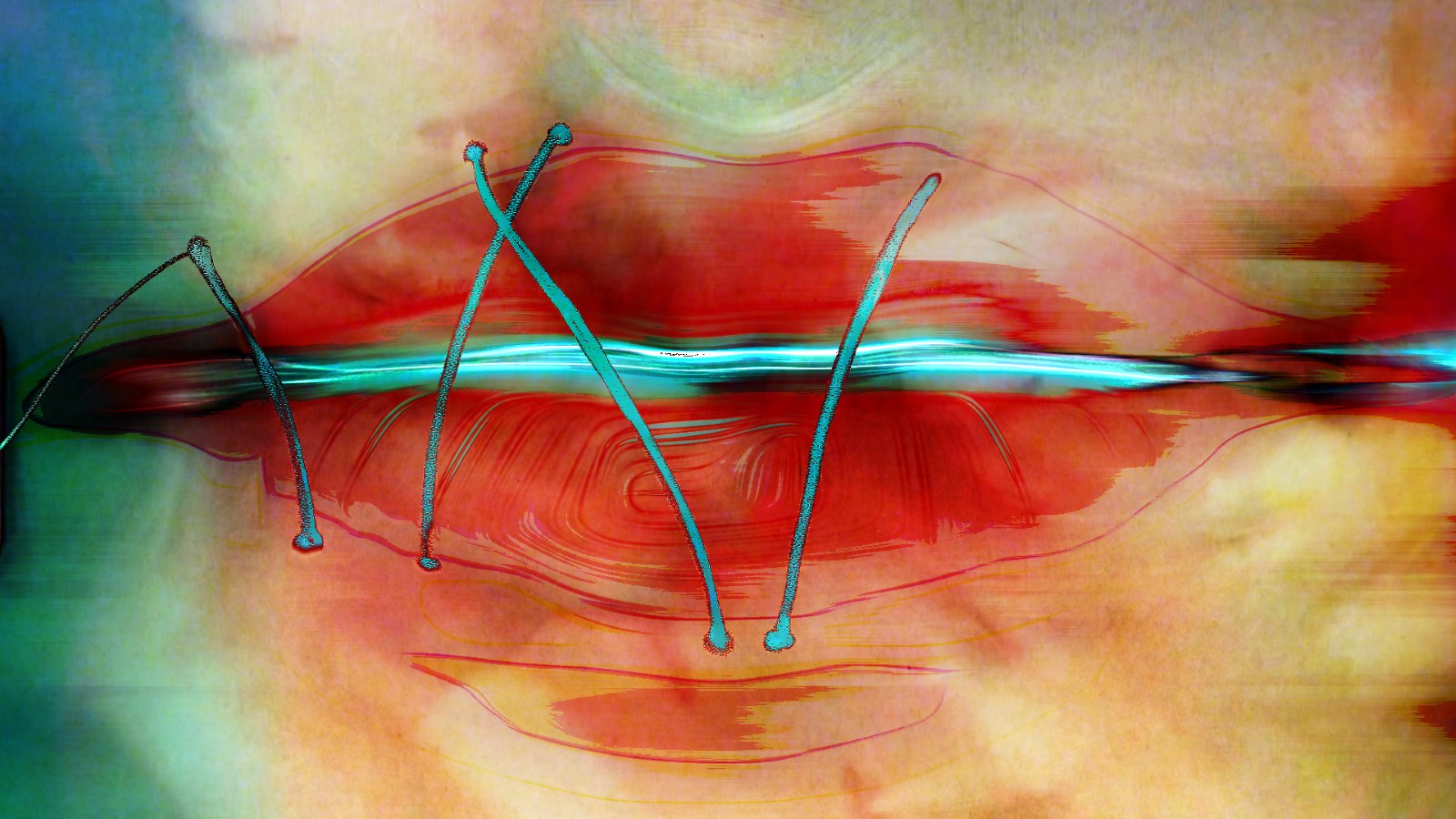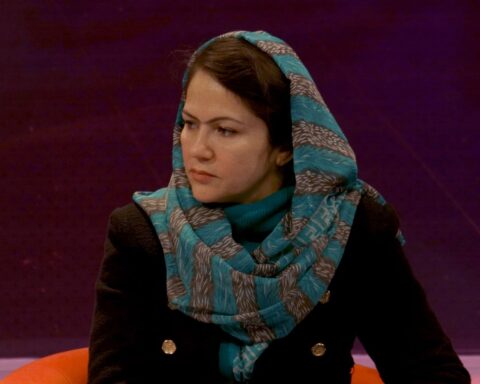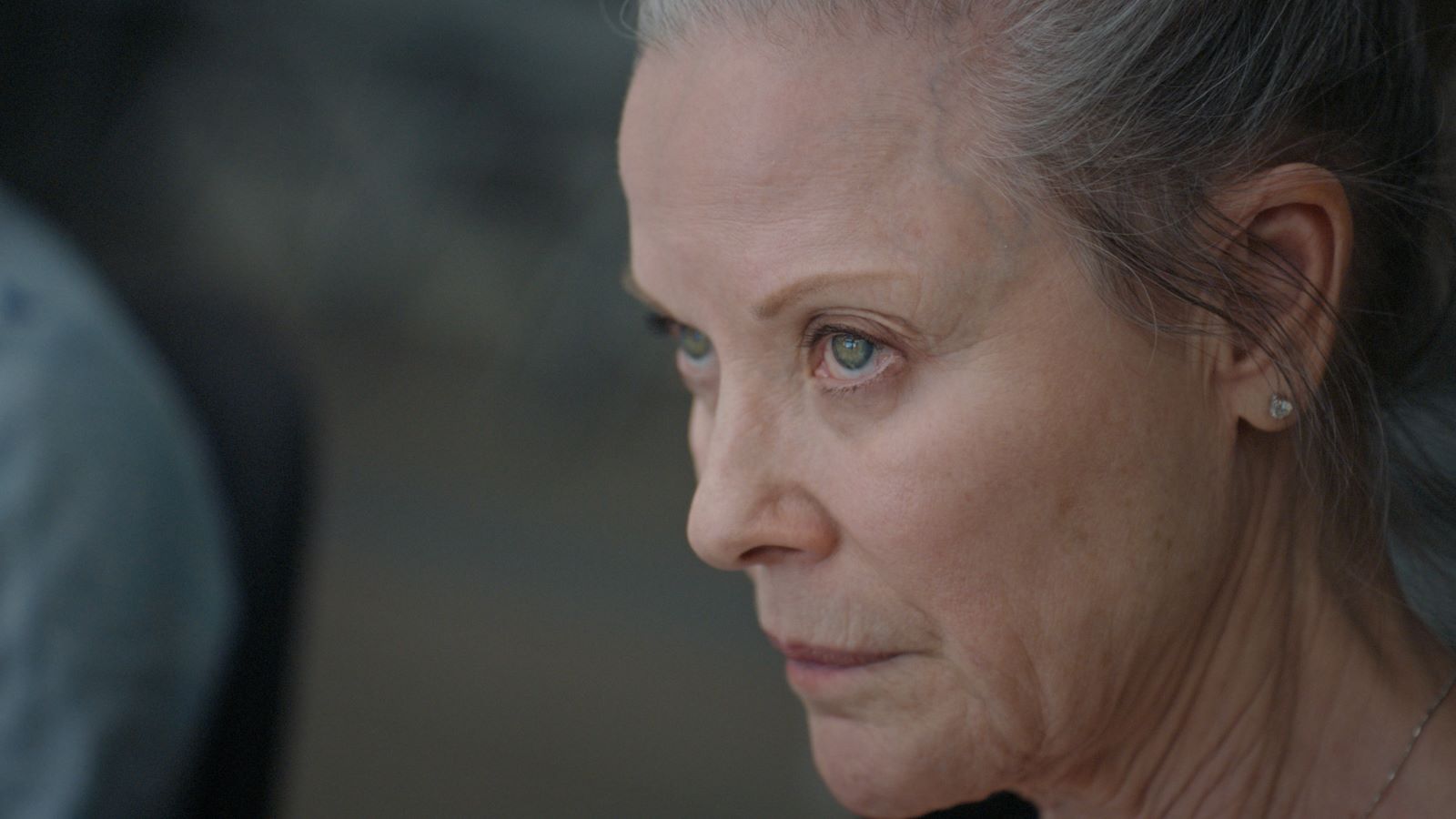“Witnessing how people in Iran stood up for their rights gave me the courage to share my story without fear,” says Meteor director Atefeh Khademolreza. “Growing up under an oppressive regime meant I had to censor myself for my own survival, especially as a woman.”
The Iranian-Canadian director, speaking with POV ahead of the world premiere Meteor at the Toronto International Film Festival, says the inspiration for her animated short doc came when 22-year-old student Jini Mahsa Amini was beaten to death by police in Tehran in 2022. The tragedy coincided with the filmmaker’s participation in John Greyson’s Viral Intervention program, which tasks filmmakers with creating 10-minute shorts that tackle HIV-related stories.

Meteor takes a unique and poetic approach to these two factors, Amini’s death and HIV, as Khademolreza connects the Woman Life Freedom movement in Iran with the suppression of the queer community. The film parallels the marches for women’s rights with the story of the filmmaker’s late friend, Amin. Her narration reflects upon Amin as a gay man who was exploring his sexuality, but died after contracting a mysterious illness. (He delayed getting tested for HIV, fearing the results.) Meteor says that Amin’s parents attributed his death to COVID-19, but the implication is clear: The violence of one epidemic hides the evidence of another. The film poetically critiques the systems that perpetuate these injustices.
“Even after immigrating to Canada, a free country, I avoided criticising the Iranian regime because I wanted to go back to Iran, my first country,” Khademolreza says. “The revolutionary movement of Woman Life Freedom taught me that achieving freedom comes with a price that we must be willing to pay. It inspired me to create Meteor. The film is my initial experience of delving into my traumas without any form of self-censorship.”
An Animated Collage
Meteor explores the stories of the women’s movement in Iran and the filmmaker’s relationship with Amin by animating images through rotoscoping. The technique, used in films like Richard Linklater’s Waking Life and A Scanner Darkly, uses live action footage as the base with each image painted frame by frame. Some images draw from footage that Khademolreza shot amid protests in Canada, while others use social media videos, news footage, and on-the-ground materials captured by others in Iran. “My goal was to portray reality. However, I believe that each person’s reality differs from others,” observes Khademolreza when asked about creating the film’s visual concept. “The way we think and analyse reality varies to convey emotion, feelings, thoughts.” Meteor deftly blends abstraction with verité as Khademolreza creates a cinematic collage that constantly engages viewers with the shape of things, with appearances, and with the constructions of social norms.
Her eye for the poetry of daily life, moreover, comes partly from the guidance of her filmmaker mentor, the late Abbas Kiarostami. Best known for his hybrid films that would blur fact and fiction while showing the everyday realities of Iranians, Kiarostami’s mentorship is evident in Khademolreza’s exploration of cinematic boundaries. “I learned from him how to tell my story in an organic way and a poetic way without making it too complicated,” notes Khademolreza. “Authenticity was the main thing that I learned from him and how we are all connected to our roots. I learned a lot from him about how an idea comes to mind and then how you develop it and visualise it on the screen.”

Metaphors for Journey and Progress
As Khademolreza considers the fight for freedom of expression and the right to love in voiceover, recurring images of subway trains, passengers bustling through the rat race, and cars whizzing through tunnels evoke a Norman McLaren-esque kaleidoscope of sound and image. The travel motif, on one hand, accentuates the distance between the filmmaker, her friend, and her home country, but it also evokes the image of forward motion, of progress.
The filmmaker notes that the motif was sometimes simply practical: She commuted via subway to protests and shot some footage along the way. But she also likes the metaphorical aspect. “A train is a symbol of a journey and this whole film is a journey for me that I’m telling a story and it has a beginning, but it doesn’t end,” explains Khademolreza. “It’s continued, so that’s why I use trains and tunnels: after passing a tunnel, you can get to the light or to the station that you are looking for.”

The Price One Pays
For Khademolreza, sharing this journey on a personal level helps Meteor raise attention to marginalized voices, but also proves a cathartic creative exercise after losing Amin. “By talking about my trauma and what happened in Iran, I could share it with other people,” she explains. “I hope by sharing my story, Meteor can amplify the sound of people who face challenges in their own countries.”
However, the filmmaker recognizes that sharing her perspective and being critical of Iranian authorities comes with a cost. With Iranian filmmakers like Jafar Panahi, Mohammad Rasoulof, and Mostafa Al-Ahmad previously jailed for using their work to speak the truth, Khademolreza knows she would face a similar fate by returning to her home country. “I cannot go back home, but it’s the price that we must be willing to pay for sharing our personal stories,” says Khademolreza. “We have to share our own stories because we are looking for freedom and social justice. These things cannot happen without sharing our reality. I paid that price just because I want to stand for personal freedom, social justice, and human rights.”
Meteor premieres in Short Cuts 1 at the 2023 Toronto International Film Festival.
Get more coverage from this year’s festival here.











